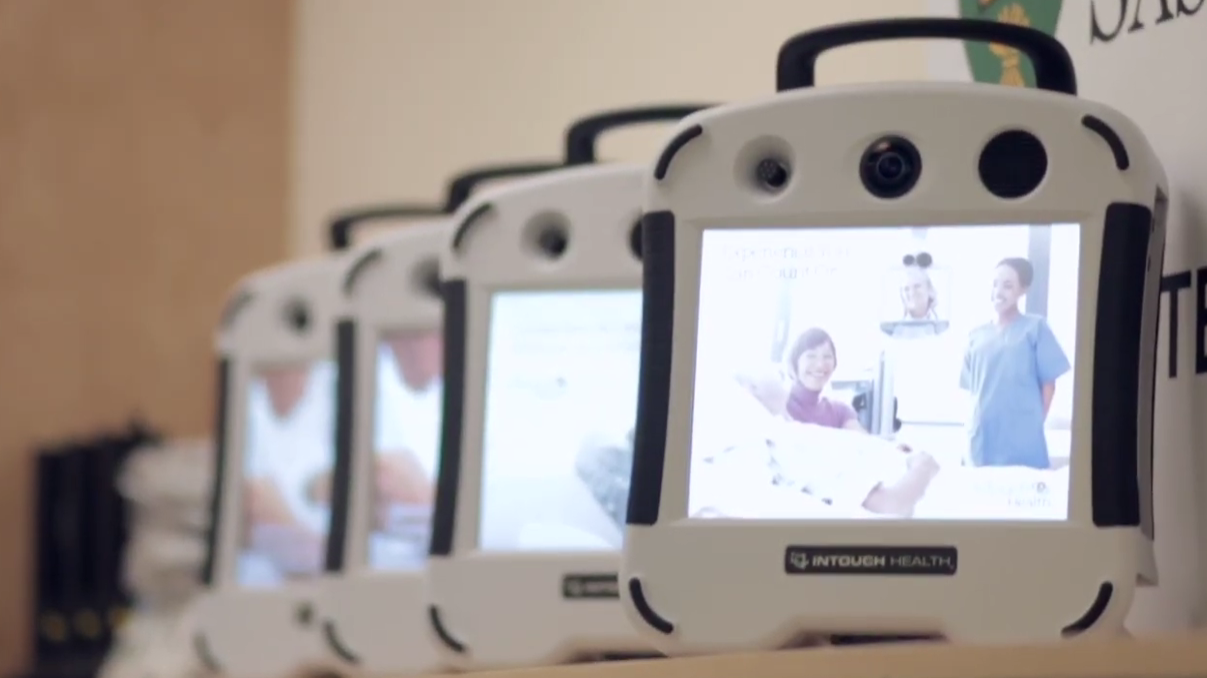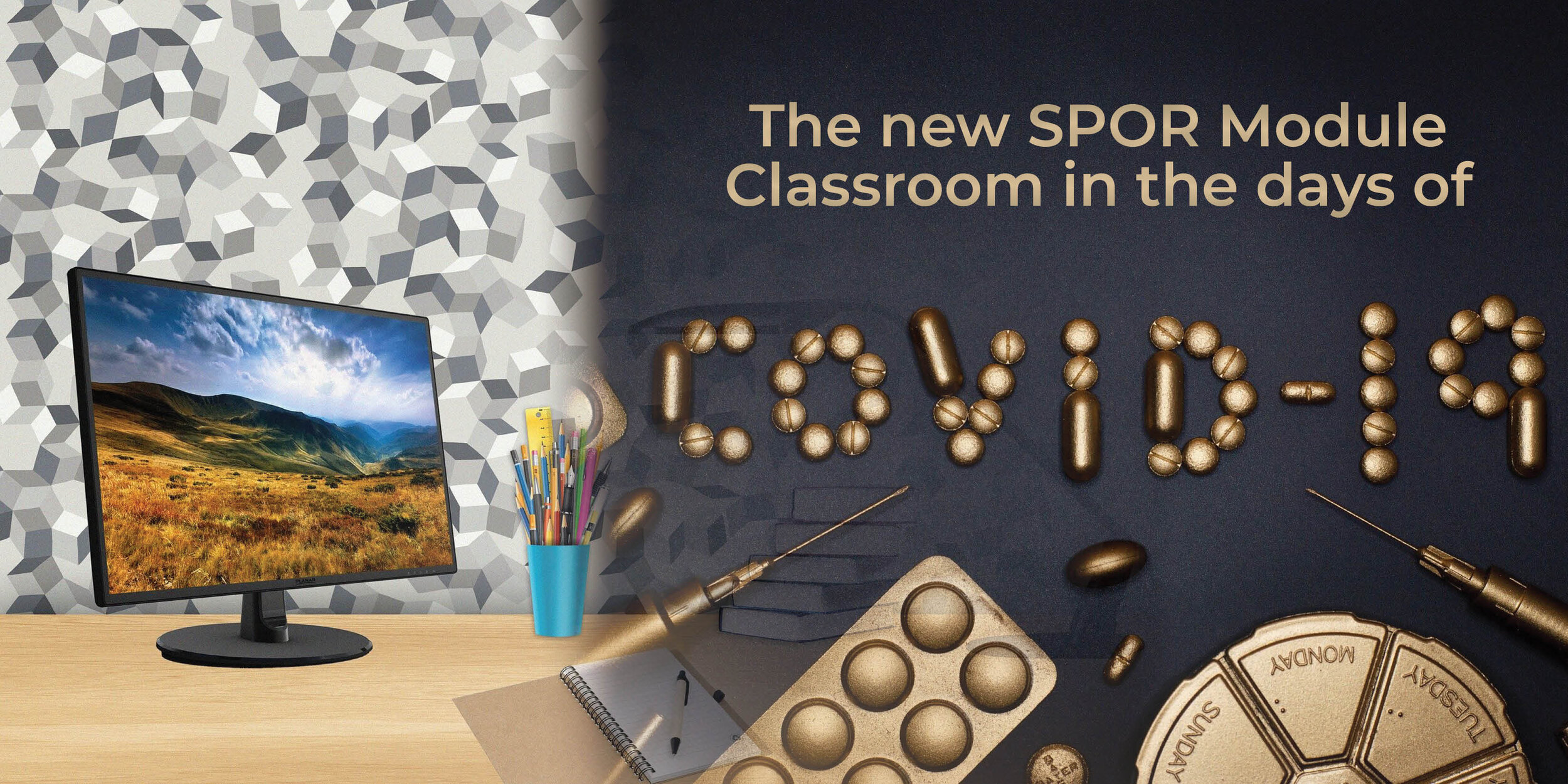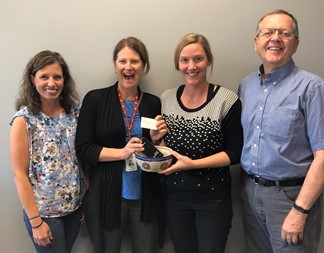
15 Teams in the HRDP-SK
Fifteen research teams are now actively analyzing Saskatchewan population health data through the Health Research Data Platform – Saskatchewan (HRDP-SK). This marks a significant increase in researchers using real health system data to understand the health of Saskatchewan people and health services.


HRDP-SK Launches its First Clinical Dataset: Mental Health and Addictions Information System
A pivotal milestone in health data has been achieved with a new database added to the Health Data Research Platform – Saskatchewan (HRDP-SK). The decade long journey to consolidate mental health and addictions data in our province and make it available for research will come to fruition, and the impacts will benefit people and healthcare throughout Saskatchewan.

Engaging Students Early in Learning Project
Sometimes the best ideas come to you, as if in a dream. That’s how it happened for Dr. Tracey Carr after pondering how she was contributing to a patient-centred measurement (PCM) working group. How was her organization adding value to the team? When she opened her eyes the next morning, suddenly the answer was clear: engage students to do healthcare research!

The Power of POR
When the Saskatchewan Centre for Patient-Oriented Research (SCPOR) and Saskatchewan Polytechnic (Sask Polytech) established a research traineeship, they imagined its potential for advancing patient-oriented research in Saskatchewan. Two past recipients, Dr. Madeline Press and later Dr. Michelle Pavloff, have since seen not only their own research and careers soar, but the overall research program at Sask Polytech as well, thanks largely to this partnership.

Remote Robotic Presence in Rural Saskatchewan
Dr. Stacey Lovo first engaged with the Saskatchewan Centre for Patient-Oriented Research (SCPOR) in 2015 while researching chronic back pain management using remote presence robotics in rural Saskatchewan. The project was a collaborative effort that began with relationship development between researchers, Peter Ballantyne Cree Nation Health Services experts, and the community of Pelican Narrows. While evaluating the longstanding back pain management project, Elders and Knowledge Keepers identified the need to conduct similar research for pediatric rehabilitation, which Stacey and her team is now researching through a Saskatchewan Health Research Foundation Establishment Grant and SCPOR partnership.

More than just a friendly face; the importance of visitors in Intensive Care Units
What happens when loved ones are no longer able to visit patients in Intensive Care Units (ICU)? It was a question that ICU physician with the Saskatchewan Health Authority (SHA) Dr. Sabira Valiani quickly came to learn the answers to when, amid the COVID-19 pandemic, hospitals abruptly restricted patient visitation in ICUs. The change was drastic and its impact immediate, prompting her, along with University of Saskatchewan (USask) researcher Dr. Jennifer O’Brien, to initiate a project to further investigate the issues.

TRANS: Trans Research and Navigation Saskatchewan - Evaluating the Impact of Peer Navigators on the Health of People who are Trans and Gender Diverse
Little research data exists about trans people in Saskatchewan. Principal Investigator Dr. Stephanie Madill and Dr. Megan Clark were asked by a community organization supporting people with lived experience to address this issue.

Patient-oriented research in Saskatchewan receives $25.2 million in support
The commitment of $25.2 million in new funding from the Canadian Institutes for Health Research (CIHR) and partner institutions will enable the Saskatchewan Centre for Patient-Oriented Research (SCPOR) to build on the strong foundation it has established over the past five years and focus on continuing to improve the quality of health services for residents.

Engaging Patient Partners in Measuring Patient Engagement
One of the features of patient-oriented research is that patients identify research priorities – the things most important to the people affected by the research. Patient Partners play a similar and equally important role in the Saskatchewan Centre for Patient-Oriented Research (SCPOR). They have unique perspectives and valuable life-experience that no amount of formal education can achieve, and so SCPOR staff work with Patient Partners in almost everything we do – it just makes sense!

Indigenous Voices & Patient Perspectives in Patient-Oriented Research
Truth and Reconciliation: Our Journey to Equitable, Accessible Healthcare in Saskatchewan is the theme for the keynote panel at 2021 Saskatchewan Health Research Showcase, co-hosted by Saskatchewan Centre for Patient-Oriented Research (SCPOR) and the Saskatchewan Health Authority. It’s a topic that deserves more attention, and one that is a core consideration in the work SCPOR does. One of the panelists for this keynote event is Patient Partner and Indigenous advocate Maggie King. She shares her insights with us here.

Turning Troubled Water into Drinking Water
Abdalla Karoyo has long held an interest in water quality. But what drove him to his current research project was the element of community. “Water quality has been my interest for a long time. The fact that there is a community involved makes this project even more important, because there’s another dimension – a very important dimension!” says Karoyo.

Levelling the Field for Farmer/Rancher Mental Health Supports
When Michelle Pavloff sat down at a farm-to-table restaurant to meet with her patient-oriented research (POR) team for the first time, she didn’t know just how significant the input from her patient family partners would be, nor what an impact farm culture would have on the direction of her project.

The Meaningfulness of Relationships in Long-Term Care Research
Relationships play a significant role in patient-oriented research (POR). Whether it is the relationship between research team members, with participants or even with the research itself, different relationships provide different perspectives. What Roslyn Compton and her team have learned while researching in long-term care (LTC) in Saskatchewan is that relationships are at the core of everything they do, and that by focusing on the dynamics each relationship brings to the team, they are able to learn more and achieve more meaning in their work.

Every dog should have its day
When Jordan Woodsworth was determining her PhD research topic, she knew she wanted to combine two of her passions: animal care and community. Immediately, she thought of work she had been doing in the La Ronge area through her role as Clinical Associate Veterinarian with the University of Saskatchewan, Western College of Veterinary Medicine, and realized she could use her research to improve veterinary services by evaluating the accessibility and effectiveness of the semi-annual clinics in underserved communities.

How COVID moved a classroom online...and how Patient Partners helped make it happen!
When COVID-19 hit and SCPOR closed its physical offices and put a hold on all in-person training and events, the concept of moving SPOR Module training online was not new. While the uncertainty about the pandemic left many to “wait and see” how best to move forward, SCPOR took a proactive approach in addressing the training issue.

Humility is a key ingredient in Health Research
SCPOR trainee José Diego Marques Santos works for the SPROUT Grant award-winning team lead by Dr. Juan-Nicolás Peña-Sánchez. This project is called “Understanding and advocating for Miyo-Mācihowin (good health and well-being) among Indigenous Peoples living with Inflammatory Bowel Disease”

A Community of Research that Grows: Saskatchewan’s Patient-Oriented Research Leaders mark official launch of SCPOR’s Affiliated Researcher Alliance
When it was first created in February of 2019, SCPOR’s Affiliated Researcher Alliance – or ARA – had less than a dozen members. Today that membership has grown to more than 70 researchers from a variety of research fields across Saskatchewan.

SCPOR Elevates Mental Health & Addictions Research in SK
SCPOR's official launch of its Mental Health and Addictions Research Program on September 30th at Saskatoon's Alice Turner Library drew a diverse crowd that included patient advisors, researchers, and health system leaders.

People Living with MS Eager to Take Part in Research for Increased Physical Activity
When a research project sees high recruitment rates, it speaks to the engagement and relevance of the research topic. That is the experience one research team has had recently, led by Drs. Sarah Donkers and Katherine Knox from the College of Medicine at the University of Saskatchewan.
